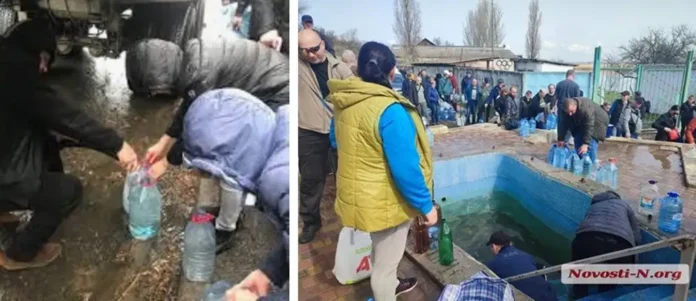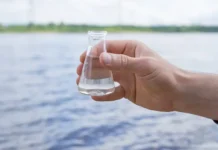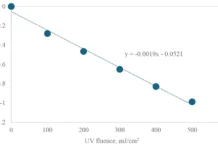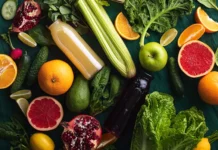By Maksym Bazhal, National University of Food Technologies, Ukraine; Richard M. Mariita,
Crystal IS, an Asahi Kasei Company, USA; and Tatiana Koutchma, Agriculture and Agri-Food Canada, tatiana.koutchma@agr.gc.ca or tnkoutchma@gmail.com
The ongoing war in Ukraine has devastated the water and electrical infrastructure, leaving millions of civilians without access to drinking water and power. According to the United Nations Office for the Coordination of Humanitarian Affairs (OCHA), as of January 2022, more than three million people in Ukraine require humanitarian assistance. ¹ This assistance includes access to basic needs, such as food, water, healthcare and shelter. In addition, destruction and restricted access to drinking water has led to 1.4 million people without running water, with additional 4.6 million people without adequate access to safe drinking water as they drink water from lakes, rivers, old unkept wells and other microbiologically unsafe water sources (Figure 1). ²
In this crisis, a simple solution for water disinfection can be applying germicidal Ultraviolet subtype C (UVC) light generated by light-emitting diodes (LEDs). UVC light is highly effective against general microflora and waterborne pathogenic organisms. UVC LED-based water systems for disinfection are compact and easily installed in water-dispensing devices as plug-and-play water treatment systems for most point-of-use applications. The use of UVC LED systems can save people’s lives by ensuring sustainable access to clean, disinfected water.
In September 2022, before starting widespread field applications, Crystal IS donated 10 Klaran UVC LEDs systems and support to the National University of Food Technologies (NUFT) for an assessment of design solutions and requirements for water treatment from unconventional water sources. The Klaran UVC LED systems were combined with filter elements in the construction of a mobile water treatment system to clean water from unsafe sources by filtering, deodorizing and UVC disinfecting.
A few critical challenges must be addressed to implement the project’s objectives. The main critical challenge is that water from ground sources may contain mechanical impurities (sand, soil, leaves, rust, various pollutes), pesticides, organic substances, pathogenic microorganisms and other contaminants. Also, the existing technological solutions for cleaning water require a power supply of 220 VAC, which is challenging in extreme crises. Advantages of using UVC LED systems in this case include ability to operate them on DC power, such as battery, power banks, solar or any alternative energy source. The kit’s components must be available locally and purchased from local suppliers. In such a crisis – a low-resources situation with no laboratories, reliable grid electricity and expensive equipment – there should be access to portable water test kits and essential instruments that are easy to use for monitoring water quality and measuring microbiological effectiveness.
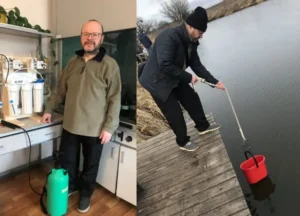
A mobile UVC LED water disinfection system for individuals and small groups has been developed in Ukraine. As shown in Figure 2, the system consists of the manual water sprayer ³, three filters (mechanical – carbon – mechanical), Klaran UVC LED system and a power supply unit. The sprayer also serves as a tank for untreated water. The filter is a standard flask where a polypropylene cartridge for mechanical water filtration is installed. Instead of a standard filter cartridge, users can install an activated carbon cartridge, which can perform mechanical water filtering and remove odors, pesticides, chlorine and organic impurities from the water. Two types of power supplies were trialed: a standard 220 VAC (grid, generator, inverter) and universal unit (battery 12 VDC, 24 VDC), power bank (min. 15 W at 5, 9, 12 VDC). The throughput of the kit is 1 to 2 L/min. Filter cartridges easily can be changed after treatment of 10,000 liters of water. Filter cartridges are the standard devices available for purchase at any store.
The first tests validated the mobile kit’s microbiological efficacy against Irpen River microflora with initial turbidity levels of 1.6 NTU. The microbial analysis occurred in the Kyiv Regional Center for Disease Control and Prevention microbiological laboratory of the Ministry of Health of Ukraine. The performance calculator for the Klaran UVC LED system was used to evaluate the UVC dose for UVT of water at 95% and a flow rate of 2 L/min. The calculator determined the water processing conditions corresponded to delivering UV fluence of 22 mJ/cm2 in the laminar flow regime. The succession of filters greatly affected the turbidity of water entering the UVC LED reactor and, consequently, the microbial reduction. The most favorable conditions were observed when combining a standard mechanical filter (1 µm) followed by the carbon filter (5 µm) and one more mechanical filter (1 µm), which resulted in a reduction of the initial total microbial count of ~ 5.9 logs up to 2.4 logs after treatment in the output of the kit. Approaches to reduce turbidity from 1.6 NTU followed by more tests currently are being conducted to determine the most effective solutions design and number of UVC LEDs reactors required to achieve drinking water quality equivalent to the quality of water recognized by Ukraine regulations.
The initial tests conducted in Ukraine showed the effectiveness of UVC LED-based mobile systems for cleaning water. The basic set-up easily can be changed according to the customer’s specific requirements, including reducing or increasing the volume of the sprayer from five, 10 or 20 liters. Adding filters can assist in achieving specific characteristics of water, such as a water-softening filter, iron-reduction cartridge and other filters. The kit can be assembled and operated easily and quickly, according to the instructions attached to each unit and YouTube video. All set-up components have appropriate certificates from USA, EU and Ukraine.
To further implement this project, more funds are needed for efficacy validation studies, acquiring kit parts, purchasing instruments for measuring water-quality parameters and the distribution of experimental kits to different locations in Ukraine. The preliminary estimate of the number of UVC LED systems to be donated by Crystal IS is between 300 to 500.
Companies or individuals interested in sponsoring additional mobile systems or UVC LED systems or other practical solutions for use in Ukraine should contact Dr. Tatiana Koutchma, who is the leader of this initiative, or Dr. Maksym Bazhal, Kyiv Food University, the initiative’s field coordinator. The initiative also is looking for financial support for filters, certifications, fittings, power sources and more studies.
References
- OCHA. (2022). Ukraine. Retrieved March 23, 2023, from OCHA website: https://www.unocha.org/ukraine
- UNICEF. (2022). 1.4 million people without running water across war-affected eastern Ukraine. Retrieved March 23, 2023, from https://www.unicef.org/press-releases/14-million-people-without-running-water-across-war-affected-eastern-ukraine
- Solutions Design YouTube Video: (139) Mobile unit for water cleaning and disinfection in crisis situations – YouTube, https://rb.gy/xtnk


